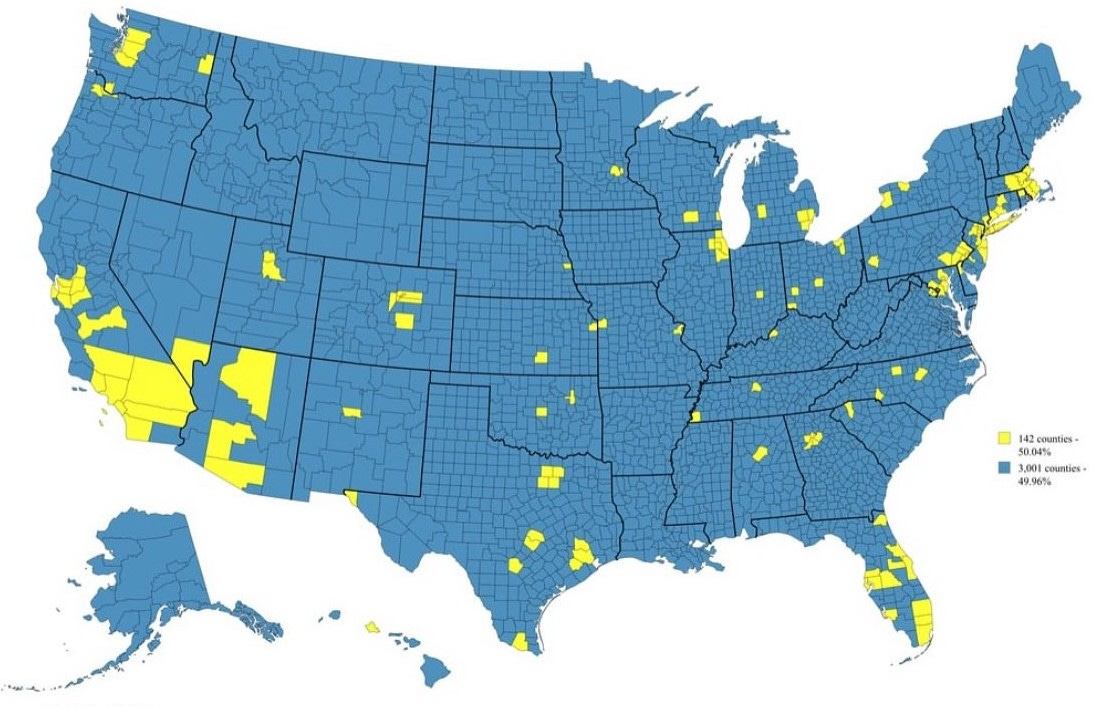Why the Electoral College Should Never Be Abolished
Why do Democrats want to dismantle the Electoral College?
The Democratic Party’s focus on the Electoral College and their consistent criticisms of it highlight a deep-seated frustration with the construct of the United States. It seems they view the Electoral College as an archaic and unfair system, one that can be manipulated to subvert the popular will of the American people. But this line of attack feels more like a way to avoid acknowledging their own electoral weaknesses, especially when failing to build a broad enough coalition to win the presidency under the current rules.
The reality is that the Electoral College is enshrined in the Constitution, and it exists for a reason. Because of this, the less populous states have a voice in the electoral process, which protects the country from being dominated by the interests of a few large metropolitan areas, or states (like California). The irony is that the system has worked as designed, yet the Democratic Party routinely criticizes its outcomes when it doesn’t favor them. This criticism explodes when a candidate wins the Electoral College but loses the popular vote, as Trump did in 2016. But the system is quite simple: candidates can win the most votes nationwide but still lose the election if their opponent wins the right combination of states to get more Electoral College votes. Even with record turnout in big states like New York or California boosting the popular vote, it doesn’t change the fact that those states only have a fixed number of electoral votes, so winning by a large margin doesn’t always translate into winning the Electoral College.
Democrats argue that this result undermines the democratic principle of one person, one vote. But elections are fought based on the rules in place, and simply complaining about those rules when they don’t suit one’s desired outcome is a bit ridiculous, isn't it?
There is also a deeper issue at play that Democrats seem reluctant to address—the potential for voter fraud, particularly with non-citizens. Critics of popular vote systems argue that in states with large non-citizen populations, the integrity of elections can be compromised. Some dismiss these concerns as fear-mongering or misinformation, but the possibility of illegal voting remains a legitimate issue, especially in those states that are soft on voter identification laws. If even a small number of votes cast are from individuals who are not permitted to vote, it calls the integrity of the popular vote into question. This is one of the reasons why the popular vote should not be the sole determinant of presidential elections, particularly when the system is vulnerable to manipulation.
Furthermore, the Democratic Party’s unwillingness to engage with the reality of voter fraud weakens their argument about the need for a purely popular vote system. Instead, they focus on shifting the narrative, demonizing their opposition for “playing the system” rather than addressing legitimate concerns about how the system itself might be open to abuse. The Electoral College prevents any single region or interest group from overpowering the rest of the nation—a balance that should not be abandoned. In many ways, the Electoral College reflects our representative democracy or constitutional republic by giving smaller states a voice and ensuring the presidency represents the entire country, not just densely populated areas. That is the end of the story.
Democrat fixation on the Electoral College comes off as more of a sore-loser strategy than a legitimate critique of electoral fairness. If they want to win, they should focus on playing the game within the established rules, instead of constantly attempting to change those rules after the fact.



